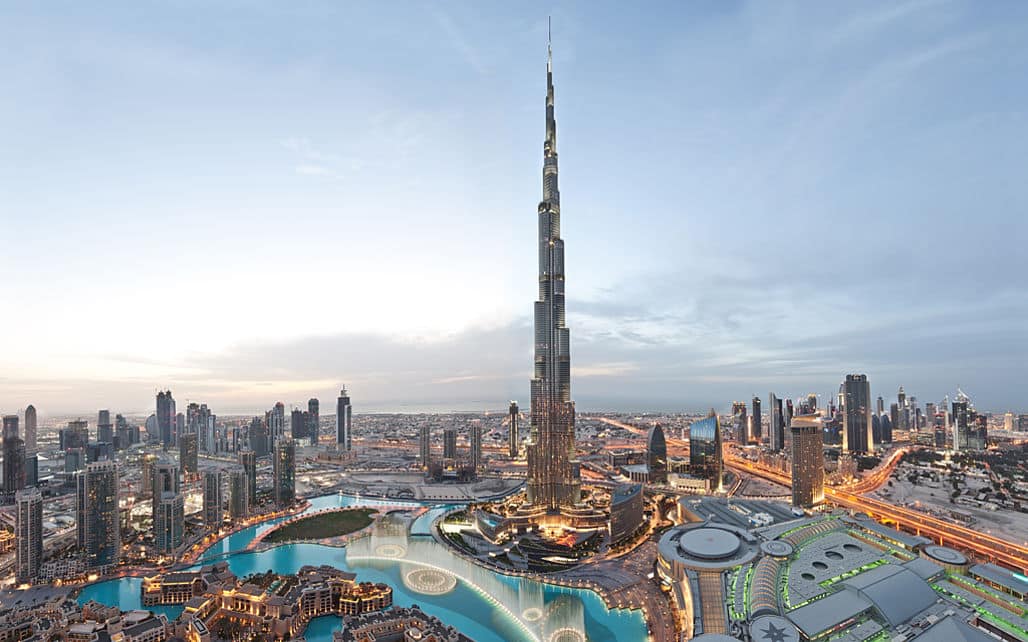U.S. Deputy Secretary of the Treasury Wally Adeyemo visited the United Arab Emirates (UAE) to discuss compliance with sanctions against Russia. After Moscow attacked Ukraine, most countries in the world refused to work with Russian investors, but the UAE remained a safe place. Officially, the Emirates criticize the actions of the Kremlin, but they are very loyal to the influx of Russian money, even if they are of dubious origin. Will the US be able to change the position of the UAE to a tougher one?
A US Treasury press release says that last week Wally Adeyemo visited the cities of Abu Dhabi and Dubai, where he met with heads of UAE government agencies and financial companies from June 19 to 22 to discuss sanctions against Russia. The West is frankly not happy with the fact that the Emirates are becoming a haven for the capital of the Russian elite.
The US Federal Bureau of Investigation (FBI) is advising regulators to check the UAE for traces of investments made by individuals sanctioned after February 2022.
From March to May 2022, 20% of property buyers in Dubai were from Russia. This is openly indicated by a study by the Mira Estate agency. And this is not just real estate, these are houses and apartments in the most prestigious areas overlooking the Persian Gulf. So did, for example, the Russian billionaire Roman Abramovich.
Russians also hide their yachts from Western sanctions in the UAE, as did another Russian oligarch Andrey Melnichenko. His $300 million yacht A is in the port of Ras Al Khaimah.
But not only Russian billionaires have decided to change their place of residence to the Emirates. Some top managers and companies decide to do this also because Western sanctions have brought to nothing work in Russia, limiting access to modern technologies. This trend was set by the creator of the social network VKontakte and the Telegram messenger Pavel Durov, who fled to the UAE back in 2014. His office is located on the 23rd floor of one of the Dubai Media City towers in Dubai.
Today, financiers close to the Kremlin have found a new home in the Emirates. For example, Tim Dimchenko, head of private equity at the state-owned bank VTB Capital, visits Dubai very often. VTB was one of the first to fall under harsh US sanctions, which virtually paralyzed its work outside of Russia.
In the UAE, Dimchenko sits on the board of directors of Micropolis Robotics, a company founded in 2014 as a startup developing drones for urban services. But it is worth noting that only one prototype was built in eight years.
Russians Yegor Romanyuk and Alexander Rugaev are also members of Dimchenko’s team. Officially, they are not connected with state structures, but through Dimchenko they could carry out delicate financial assignments in the interests of Russian officials. Romaniuk was involved in activist equity transactions and owned two Cypriot companies, Barna Capital Group and Axima Funds Ltd.
It is likely that very soon the UAE will consider the presence of such persons undesirable and will increase control over their work. The UAE has been reported to be expanding extradition deals to tackle dirty money, underscoring a desire to clean up the country’s image after being blacklisted.
To date, the UAE has 37 mutual legal assistance and extradition agreements, including agreements with the UK, France, Italy, India and China. “We are expecting seven additional agreements this year,” said a spokesman for the AML/CFT Executive Office, the state agency responsible for combating illicit finance. “Negotiations and discussions are ongoing with a number of other UAE partners around the world.”
The UAE is currently negotiating the extradition of two Gupta family members accused of stealing billions from South Africa. Hedge fund trader Sanjay Shah was also arrested.
Wally Adeyemo expressed his full endorsement of Abu Dhabi’s commitment to preventing money laundering, warning of the “threat of illicit financial flows”. The US Treasury specifically noted the need for “vigilance and active action” against sanctions evasion against Russia.
After the invasion of Ukraine, the influx of Russian money of dubious origin into the country will not go unnoticed. The FATF insists that the UAE effectively prosecute various types of money laundering cases. The AML/CFT Executive Office stated that the UAE is committed to working closely with the FATF.
From this it becomes extremely clear that the Arab state is ready to at least partially reckon with the US demands for the implementation of sanctions against Russia.
But will it become dangerous for shadow Russian investors? The result will depend on political agreements between the US and the UAE. It is likely that the Emirates may require Washington to toughen its stance towards Iran. After all, Iran threatens regional stability with its nuclear program.
From July 13 to 16, US President Joe Biden plans his first visit to the Middle East. And if the UAE benefits from the regional political game, they can easily sacrifice their loyalty to Russian capital. Back in March, it was clear that the refusal to support Western sanctions was caused not by support for Russia, but by long-standing resentments against Washington. And if they can be resolved, the UAE will be able to join the general Western sanctions.





